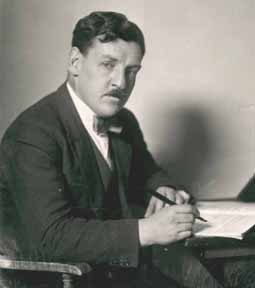Lift Your Heads Anthem for Ascension J S Bach
Welcome to the Saint Mary choir blog.
The church has both an adult and junior choir. We are affiliated to the Royal School of Church Music(RSCM). The junior choir are provided with tuition to enable them to gain their RSCM medals.
The senior choir is a SATB choir with its main responsibility to sing at the 10am Sunday service, including an anthem. See below for more details.
Our choirs do not require any fees to belong to them. New members to both the senior and junior choir are always welcome, whatever their standard. If you are interested in joining us please contact our Director of Music (Joanna) via the Contact Us page.
Friday, 19 May 2023
Thursday 18th May 2023 Ascension Day
Wednesday, 10 May 2023
Sunday 7th May 2023 5th Sunday of Easter
Ave Verum Corpus Edward Elgar
Edward Elgar (1857-1937) was born in a village close to Worcester. His father had a music shop in Worcester and tuned pianos. Elgar was mostly self taught. His influence grew in the 1880's and 1890's despite his being a Roman Catholic in a largely Anglican community. In 1889 he married one of his pupils, Caroline Alice Roberts, against opposition from her family. She played a major part in his career development.
Elgar is one of the great English composers, who has left a legacy of great orchestral and choral works.
 |
| from Wikipedia |
Sunday, 30 April 2023
Sunday 30th April 2023 Fouth after Easter
Communion Service in Fmajor Harold E Darke
Today the choir sang the Sanctus, Benedictus and Agneus Dei from the Darke Communion service.
This setting was dedicated to the Rev. John H Ellison M.V.O. Rector of St Michael's, Cornhill, E.C.
Harold Edwin Darke (1888-1976) was born in Highbury, London. His first post as organist was at Emmanuel Church, West Hampstead from 1906 - 1911. He became organist at St Michael's, Cornhill in 1916 and stayed there until 1966, leaving for a short time to deputise for Boris Ord as Director of Music at King's College, Cambridge during the second World War. Darke started lunchtime concerts at St Michel's in 1916 and these are the thought to be the longest running lunchtime organ concert series in the world.
He is best known for his setting of Christina Rossetti's poem "In the bleak midwinter". His othr music still performed are his Communion Services in E minor, F major and A minor, and his Magnificat and Nunc Dimitis in F major.
Brother James's Air (Marosa) arr. Gordon Jacob
James Leith Macbeth Bain (1860-1925) was a minister, hymn writer and poet known to his peers as Brother James. He was born in Pitlochry where he was a pupil teacher before going to Edinburgh Free Church College and the Edinburgh Established Church College. His ministry took him to Liverpool and then to London as a spiritualist minister. He is best known for Brother James's Air which is usually set to The Lord's My Shepherd.
Gordon Jacob (1895-1984) is best known as a composer for wind band and instructional texts. He was a prisoner of war in 1917 and was one of only 60 survivors of the 800 in his battalion. On his release he initially studied journalism, but changed to composition, theory and conducting at the Royal College of Music. Because of a cleft palate and a childhood hand injury he was very limited as a performing musician, but found his forte as a composer especially for wind instruments. He was considered to be conservative in style, but famously said "the day that melody is discarded altogether, you may as well pack up music...".
 |
| gordonjacob.net |
Sunday, 23 April 2023
Sunday 23rd April 2023 Third Sunday after Easter
This Joyful Eastertide Melody from "David's Psalmen" Amsterdam 1685, Harmony Charles Wood (1866 -1926) , Words G R Woodward (1848 - 1934)
This is an Easter carol first published in 1894 in "Carols for Easter and Ascensiontide". George Radcliffe Woodward was an Anglican priest who wrote many religious verses often set to music by his friend Charles Wood. He was born in Birkenhead and graduated in 1872 from Gonville and Caius College, Cambridge. Two years later he was ordained by the Bishop of London. In 1924 he received an Honorary Lambeth Doctorate in Music.
Monday, 10 April 2023
Sunday 9th April 2023 Easter Day
Monday, 27 February 2023
Sunday 26th February 2023 First Sunday of Lent
Wednesday, 22 February 2023
Wednesday 22nd February 2023 Ash Wednesday
Lord For Thy Tender Mercy's Sake Music could be by either Farrant or John Hilton. This arrangement is by Anthony Green. Words from Bull, Christian Prayers and Holy Mediaition (1568)
